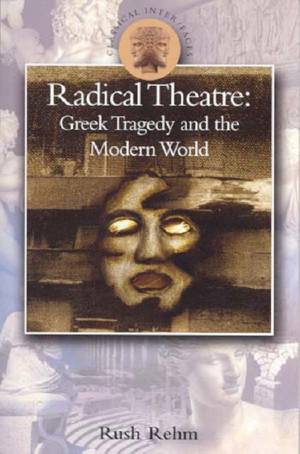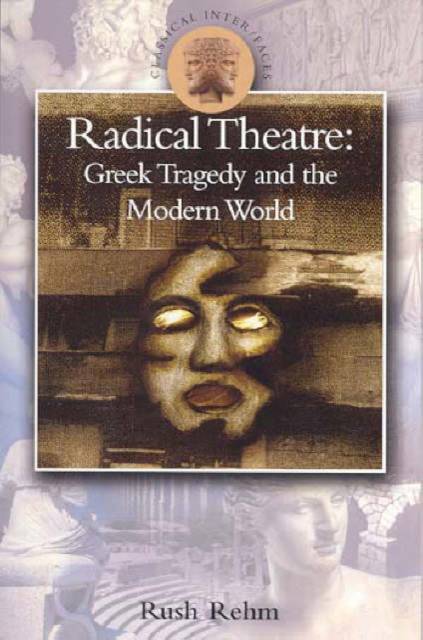
- Afhalen na 1 uur in een winkel met voorraad
- Gratis thuislevering in België vanaf € 30
- Ruim aanbod met 7 miljoen producten
- Afhalen na 1 uur in een winkel met voorraad
- Gratis thuislevering in België vanaf € 30
- Ruim aanbod met 7 miljoen producten
Zoeken
Omschrijving
Why should Greek tragedy matter now? This book opens a dialogue between the tragic theatre in ancient Athens and the multiple performances of the modern world. In five interconnected essays, Rush Rehm engages tragedy on its own terms, using our oldest theatre as inspiration for how we might shape the theatre of the future.
'Theatre, Artifice, Environment' explores the difference between the outdoor theatre of Athens and the artificial interiors of modern performance. 'Theatre and Fear' compares the terrors confronted in Greek tragedy with our own, seemingly distant fears (environmental destruction, dehumanising technology, corporate control of livelihood and culture). 'The Fate of Agency, the Agency of Fate' applies the paradox of human freedom in Greek tragedy to our own paradoxes of powerlessness and mastery. 'Tragedy and Ideology' treats Greek tragedy as an act of resistance, and 'Tragedy and Time' relates Greek tragedy's survival to its moment-to-moment realisation in performance.
Part analysis, part polemic, Radical Theatre engages the aesthetic, political and ethical challenges of Greek tragedy as a means of confronting what tomorrow's theatre can do.
'Theatre, Artifice, Environment' explores the difference between the outdoor theatre of Athens and the artificial interiors of modern performance. 'Theatre and Fear' compares the terrors confronted in Greek tragedy with our own, seemingly distant fears (environmental destruction, dehumanising technology, corporate control of livelihood and culture). 'The Fate of Agency, the Agency of Fate' applies the paradox of human freedom in Greek tragedy to our own paradoxes of powerlessness and mastery. 'Tragedy and Ideology' treats Greek tragedy as an act of resistance, and 'Tragedy and Time' relates Greek tragedy's survival to its moment-to-moment realisation in performance.
Part analysis, part polemic, Radical Theatre engages the aesthetic, political and ethical challenges of Greek tragedy as a means of confronting what tomorrow's theatre can do.
Specificaties
Betrokkenen
- Auteur(s):
- Uitgeverij:
Inhoud
- Aantal bladzijden:
- 174
- Taal:
- Engels
- Reeks:
Eigenschappen
- Productcode (EAN):
- 9780715629161
- Verschijningsdatum:
- 27/06/2003
- Uitvoering:
- Paperback
- Formaat:
- Trade paperback (VS)
- Afmetingen:
- 167 mm x 233 mm
- Gewicht:
- 331 g

Alleen bij Standaard Boekhandel
+ 69 punten op je klantenkaart van Standaard Boekhandel
Beoordelingen
We publiceren alleen reviews die voldoen aan de voorwaarden voor reviews. Bekijk onze voorwaarden voor reviews.








